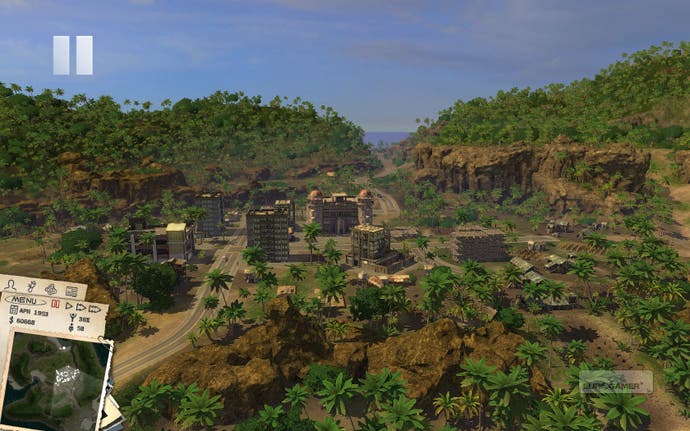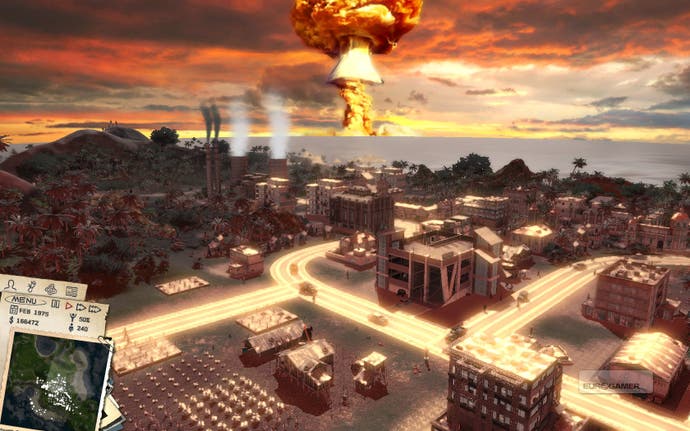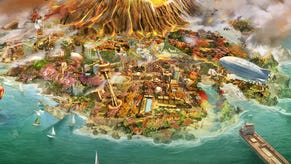Tropico 3
Havana good time.
What could have been vaguely terrifying though is rendered less so by the developer concealing reams of statistics so casual players can skim over them. Play styles, meanwhile, are initially dripfed through the opening campaigns, while a welcome four-gear speed system (well, three gears and a neutral) means that time can be frozen if things get hectic. You'll rarely need anything apart from pause or fast-forward, but speaking as someone who craves being given time to breathe in games of this ilk (and who suffered slightly with the pace and slight lack of hand-hold moments in developer Haemimont's recent Roman city-builder Grand Ages: Rome), Tropico certainly sits on the right side of the brain-tease versus frenetic frustration divide.
This said, it's certainly far better at telling you what buildings your increasingly stroppy people are demanding (or having its ever-broadcasting radio station DJ dip his elbow into public opinion to see just how incandescent with rage they are) than actually explaining just what's gone wrong with the structures already built. As ever, it's a learning process - albeit a fun and engaging one, with a few decent gags smuggled into both DJ patter and UI info alike.
Another problem is that neither campaign success nor the shock of invasion and electoral defeat are ever particularly dramatic - and the imminence of failure could sometimes be flagged up a mite more clearly. Quite often you'll be in full flow and jiggling to the music, only for a "Sorry!" screen to appear alongside your own personal internal feeling of utter emptiness.

An area in which Tropico 3 certainly does win big though are the rich seams of scripted politics that run through each island's campaign, alongside more random terrorist threats and natural crises like earthquakes. As you play you'll get story nuggets fed through about foreign investors who a little later down the line will turn out to be undercover CIA operatives, strange attacks from voodoo killers or an insolent drunken tourist you can choose to have executed who's revealed to have more important connections than you'd imagined.
With each event you make a decision, and then the story spins out in whatever direction you've sent it in - invariably having you either reap the profits of your clever politician ways, or seriously piss off a world superpower. These are then peppered with smaller events to deal with caused by your populace's more extreme reactions to your (mis)rule - a bomb in a factory, for example, tourists taken hostage, or a good old-fashioned military coup. It's a great way of adding flavour and tone to what could have strayed towards samey scenarios.

It's arguable that extreme fans of the city-build artform might feel limited by technology trees that don't extend all that far. They also might find the concept of having their own cigar-chomping avatar (of which there are many famed revolutionary types with different traits to choose from, or design yourself) wandering around the place to chivvy along construction work a little silly.
Maybe also, whereas I quite like my statistics hidden away so I can peek at them every now and then but generally avoid stomach-dropping sensations of economic fear, there's no doubt that hardcore strategists would rather have their graphs a little more loud and proud. Overall, however, you can't help but feel that the sheer charm, visual allure and fascinating setting more than straddles the genre-enthusiast divide.
And, of course, there's the music. Which, as we've already is discussed, is awesome. The fight to have this music piped through every PA, loudspeaker and radio station in Britain begins now. Viva la revolution.


